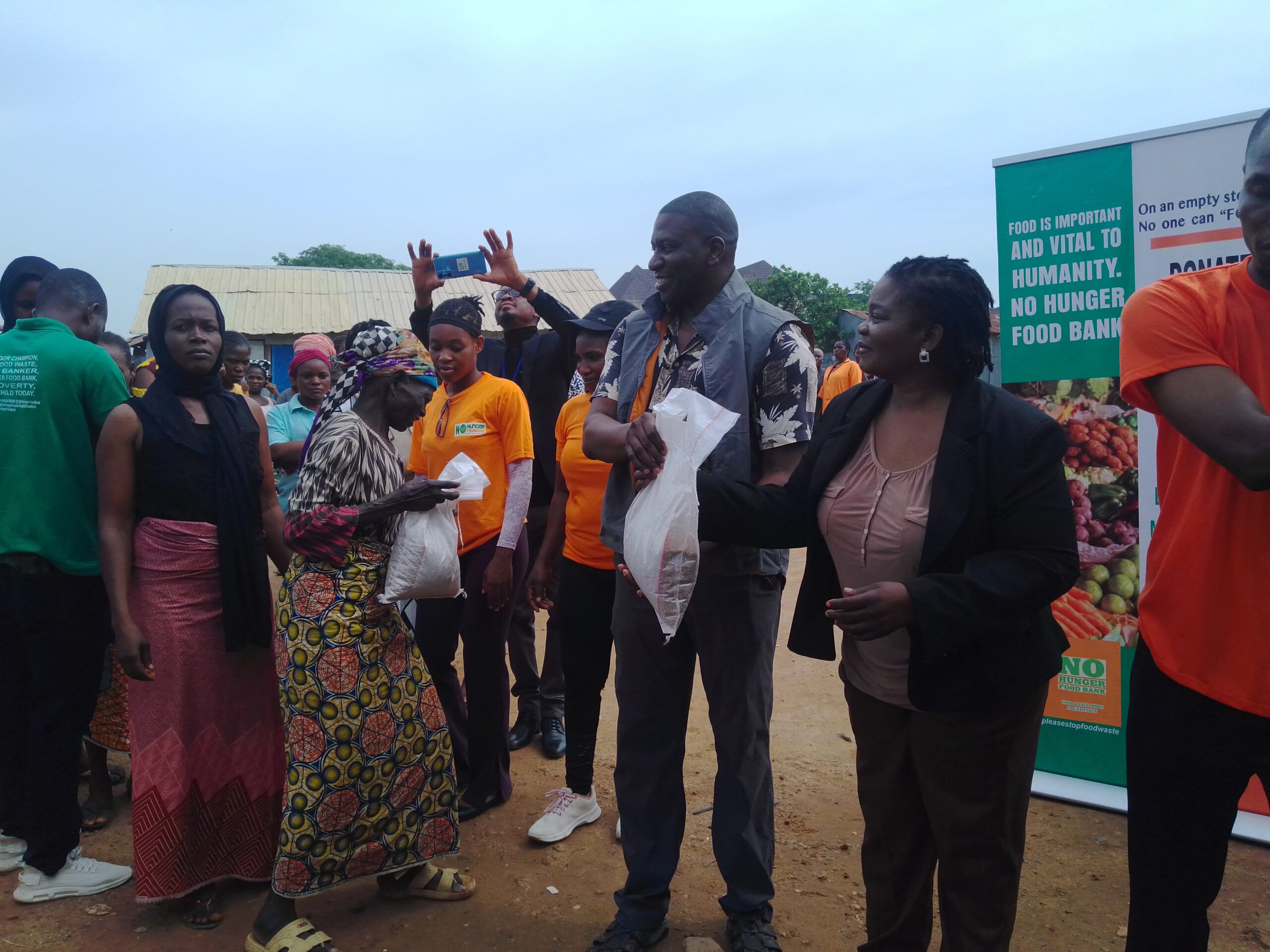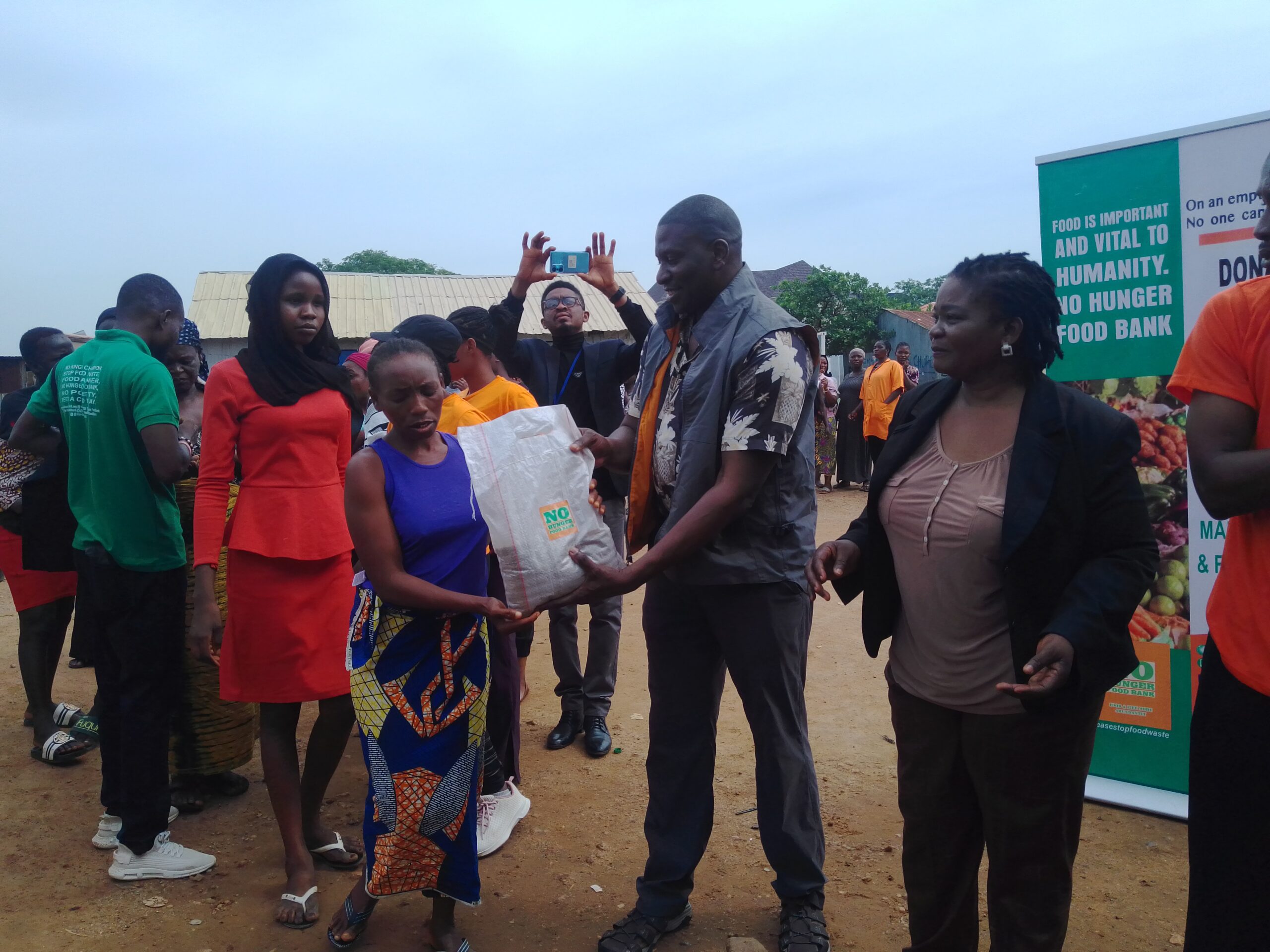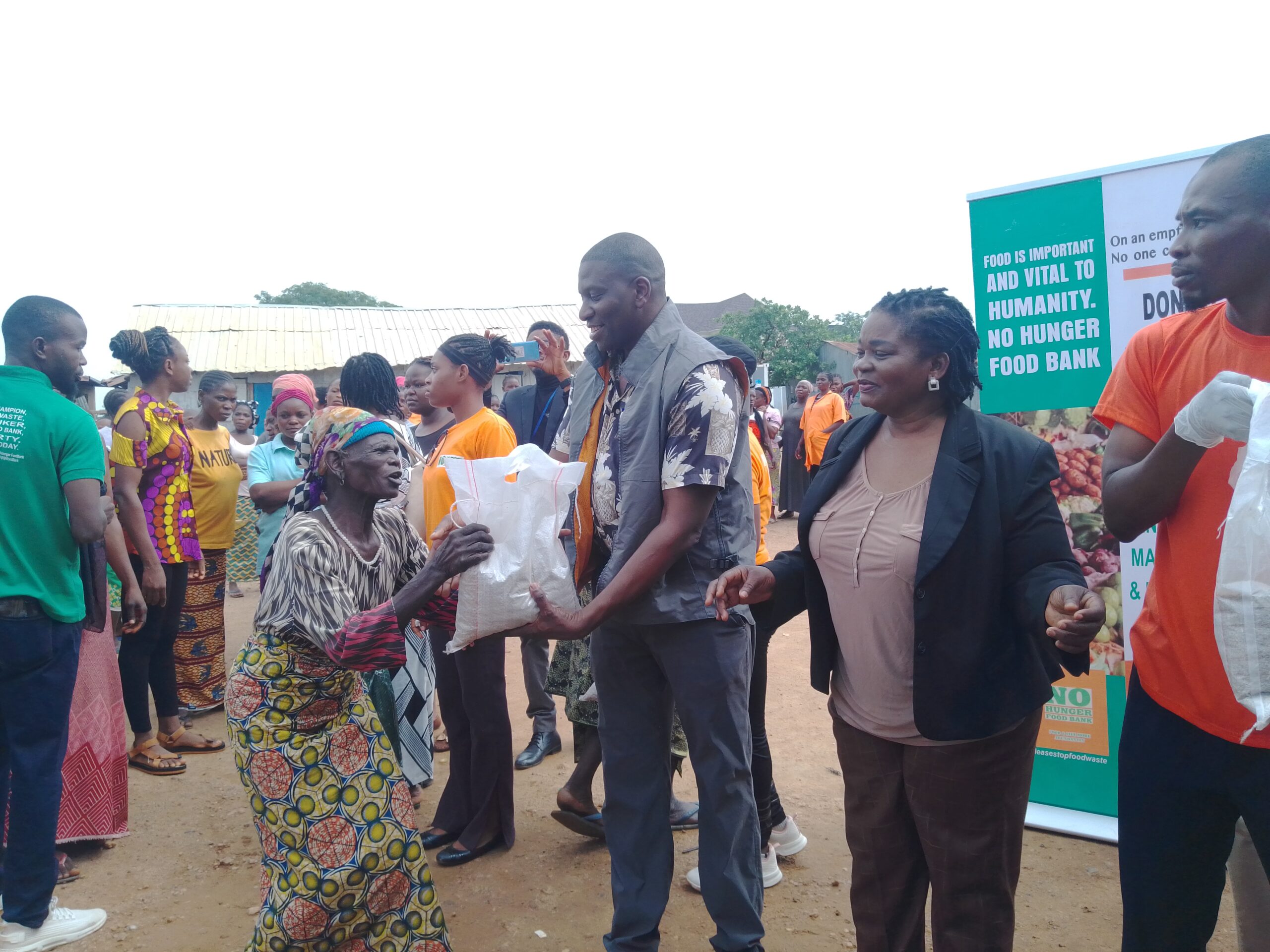
By Miriam Humbe
The President and Founder of No Hunger Food Bank (NHFB) initiative, Abuja, Mr Gbadebo Odularu, urged government to use the food bank model to scale to all communities in solving the problem of food insecurity and malnutrition among the vulnerable population.
Mr Odularu said this on Tuesday during a visit to the internally displaced persons, (IDPs) camp located at the Kuchingoro near the Games Village in Abuja.
Humsimedia gathered that there were eight different Communities resident at the IDP camp comprising of people, men women and children, mostly from the Northeast States of Borno and Adamawa all longing to return home.
Odularu said the No Hunger Food Bank, was driven, motivated and dedicated to solving the problem of hunger among the IDPs as well as the vulnerable populations in Abuja.
He also said the passion for the initiative was driven by the high level of food shortages in the country especially in the Northern part, occasioned by the insurgency and the recent covid-19 pandemic.

Odularu said: “We are motivated and dedicated in solving the food crisis among the IDP and all others.
“The NGO has been running for five years, we have been trying to solve problem of food insecurity among the population with the declining resources in the sector we partner with international organisations with same goal.
“That is why they have come to see what we are doing, our operations, challenges among others for us to meet up with the needs of the IDP, also in collaboration with the government”.
He also said: “That’s the purpose why we got the Global Food Banking Network that has come to visit us to see our operations and see how to help us scale so that we’ll be able to reach all those IDPs and in collaboration with the government, with the Ministry of Agriculture, also with the Ministry of Trade, not only to scale but also to create the necessary awareness.
“Our call to the government is to use this model of food banking in solving the problem of food insecurity in our country.”
The No Hunger Food Bank therefore, engaged their foreign partners, the Global Food Banking Network located in Chicago, United States of America to work as a team to achieve the goal of hunger reduction among Nigeria’s vulnerable people.

The Field Service Director of Global Food Banking Network, Mr Chris Rebstock said that his Organization was in Nigeria to see what help they could render.
Rebstock said: “We’re here to know how we can help.
“We have a fund raising department in our NGO, based in Chicago and they work to secure funds from Corporations and Foundations and individuals, mostly in the United States and that funding allows us to be able to come out and provide technical assistance to Hunger Food Banks without having to charge them. We don’t charge them for our services because we raise the funds that comes to take care of it.”
He spoke on personnel deployment for the tasks and other modes of operation: “There’s two ways here. The food banks like the No Hunger Food Banks, they existed before they knew about us and they came to us when they learned about the Global Food Bank Network and asked if we could be helpful in developing their programs, so we respond to those kinds of incoming inquiries.
“Then in some countries where Food Banks don’t already exist, but we think they could be effective, we go into the country and meet with government leaders and private sector and civil society leaders and try to introduce the concept of food banking and stimulate interest in developing a food bank locally.
“We work as consultancy coaches to help them design a food program together because it has to be locally owned. We can’t just create a new food bank.
“If we do that, they won’t be able to sustain it when we leave. It has to be locally developed. So we work both ways. We respond to incoming inquiries like we have from the No Hunger Food Banks and sometimes we stimulate the interest to grow the food bank.
“We’re encouraging the No Hunger Food Bank to continue to expand its operations and their access to resources so that the resources so that the services they provide in situations like this can increase and our job will be to help them think through with how to enhance those programs and how to generate the resources that will provide the food they need to expand the number of people that they can reach in a situation that arises.”
Also, National Secretary General of Awep and Synergy President of Rotary Club of Lugbe VON, Nelly Osagie Ndaguba said: “We have taken 10 children from there back to school and going to take more this September by God’s Grace”.
Coordinator of the No Hunger Food Bank, Nigeria, Vera Kundet said that the No Hunger Food Bank needed financial backing to achieve their objectives.
She therefore called on governments, Corporate Organisations and individuals with financial means to partner with the No Hunger Food Bank, Nigeria to enable it reach out to more persons in need.
Meanwhile, the spokesperson for the IDPs, Ishaku Abdullahi said that most of the people in the camp had stayed there for nine years and became home sick.
Ishaku Abdullahi who hails from Borno State said: “Help us go back to our communities”.
The camp said to have 3,000 persons also had some new entrants from the recent crisis in Plateau State.
Highpoint of the visit was distribution of food packs to persons in the camp.


